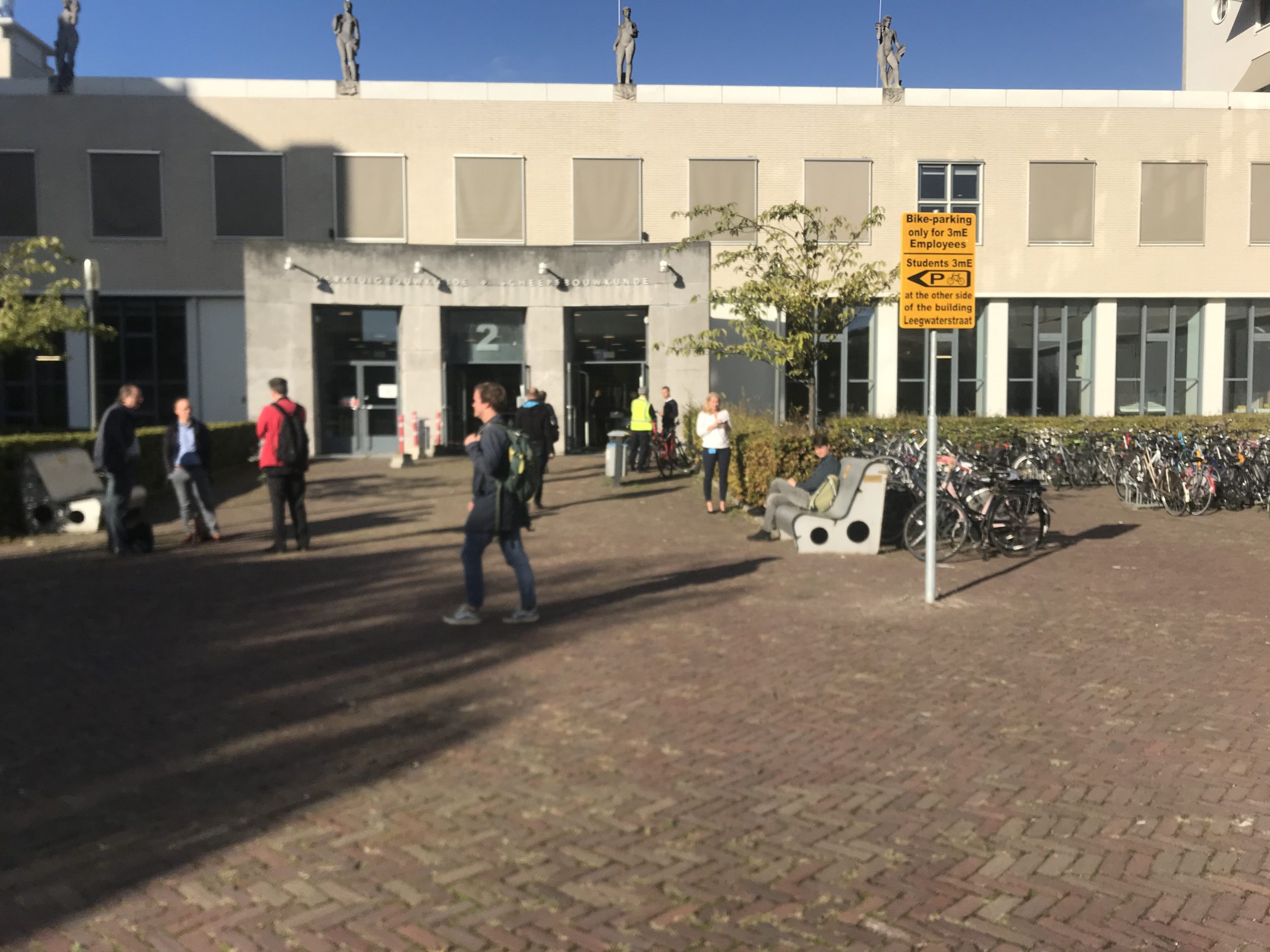TU Delft has compiled a campus protocol and taken additional measures to make the campus ‘corona proof’ this academic year. These are the most important points.
Access to the buildings is only permitted with a campus card. (Photo: Delta)
All the rules to which students and staff must comply to get through the new academic year safely are listed in the protocol. Those who are fed up of staying at home just have to grit their teeth and keep going. A combination of working and studying at home will be the norm, writes TU Delft.
At campus or not?
The picture is somewhat more flexible for students than for staff. This year, students will have a mix of online and physical teaching. The physical teaching will be done in small groups of between 10 and 20 students. To spread out the students and movement around campus, the decision was already taken in the last academic year to lengthen the teaching day.
Each degree programme will organise its own mix of online and physical teaching. The Faculty of Industrial Design, for example, has two ‘slots’ of physical teaching for each student every week. TU Delft advises all students to keep an eye on Brightspace.
A digital system for staff to register their attendance may be in the planning. Staff may work at TU Delft two half days a week. “The decision of whether you may or may not come to campus will then probably be taken by your supervisor,” says spokesperson Karen Collet.
Set walking routes in buildings
One rule applies to every building: set walking routes lead pedestrians through faculties. Further, arrows guide one-way traffic, stickers show where you can sit, and floor stickers remind users to maintain one-and-a-half metres distance. The buildings will be cleaned more frequently and the counters will be fitted with plexiglass screens.
Access to the buildings is only permitted with a campus card. Not only do you need to check in, but you need to check out too. Last week the Students Council expressed its concerns (in Dutch) about this decision vis-à-vis the privacy of students. What happens to the data collected? Danko Roozemond, policy officer, reassured them that personal data was not visible. “The data is in the system, but nobody has access to it.”
What about the ventilation?
Other measures vary across buildings. TU Delft has calculated the maximum number of people who may safely be in every space in every building at one time. The Faculty of Industrial Design, for example, can accommodate up to 400 students a day while the editorial office of Delta may only accommodate up to four people at the same time.
Their ventilation system is an issue for many universities. One way that the virus may spread in closed spaces is via miniscule floating droplets (aerosols) in the air, wrote Professor of Indoor Environment Philomena Bluyssen and other scientists this summer in an open letter (in Dutch). The droplets are dispersed into the air when someone coughs, laughs, sneezes or talks.
According to Prof. Lucas van Vliet, Head of the Building Management and Facilities Task Force, TU Delft is complying with the guidelines and advice of the RIVM, the Federation of European Heating, the knowledge platform for the technical companies Installatietechniek TVVL and Bouwend Nederland.
On campus
In a video on the new rules, TU Delft asks students and staff to not come too early and not to hang around afterwards when they have physical lectures. TU Delft also recommends everyone to come with their own transportation and to walk across the campus instead of cycling.
TU Delft has installed cameras in eight busy places on campus to monitor whether people are maintaining enough distance. On Monday, the JOVD (Youth Organisation for Freedom and Democracy), after Delta reported the arrival of the cameras, wrote that it views the cameras as a disproportionate measure.
Food and drink
After being closed for months, six more catering services opened their doors on Monday, even if only for a few hours a day. There is no seating, instead you get your food or drink in a grab and go system. Some catering services are only accessible for the students and staff of particular faculties, others are accessible to everyone.
Do you have a question or comment about this article?
a.m.debruijn@tudelft.nl


Comments are closed.